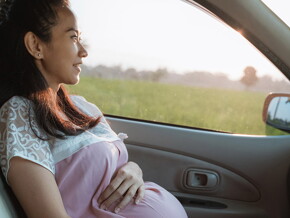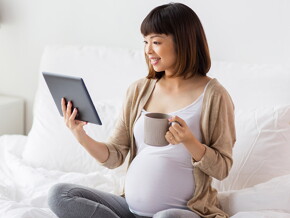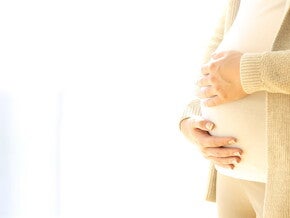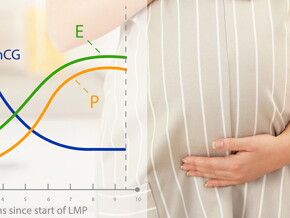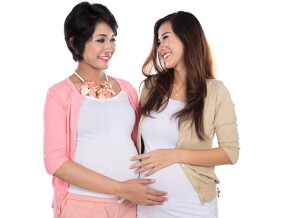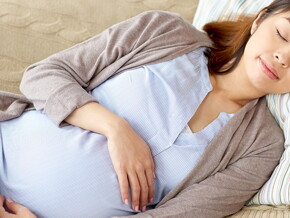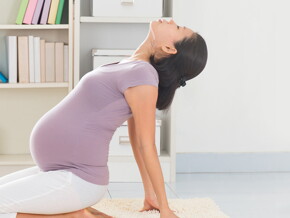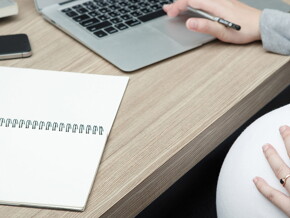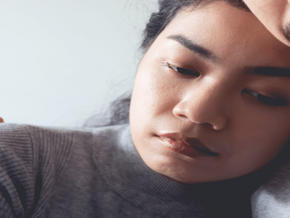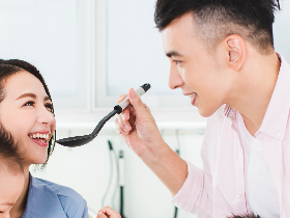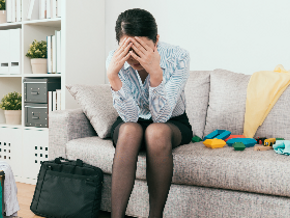
Symptoms in early pregnancy
It's normal to have some aches and pains during your pregnancy. This article describes ideas you can try to make things more comfortable, and highlights symptoms that need the attention of your GP.
There are ideas you can try to make things more comfortable.
Identifying symptoms and how to deal with them1
It's normal to have some aches and pains during your pregnancy. But you don't always have to grin and bear it. There are ideas you can try to make things more comfortable. If you are concerned about any of these problems, contact your GP.
Minor problems
Backache
- Hormones released during pregnancy will relax and stretch your ligaments in preparation for labour, and this puts extra strain on your back and hips.
Things to try
- Massage
- Back-strengthening exercises (ask a physiotherapist to show you)
- Stop wearing high-heels
- Sleep on a firm mattress
- Take extra care when lifting any objects
- Take care of your posture when sitting. Keep your neck and back in a straight line
- In the latter stages of pregnancy, get as much rest as possible
- Ask a physiotherapist for advice on taking the strain off your back
Constipation
- Hormonal changes and your growing baby may slow everything down in your intestines, which can cause constipation
Things to try
- Foods with plenty of fibre, like wholemeal bread, pasta, fruit, vegetables, breakfast cereals, beans and lentils
- Drink lots of water and juices
Cramps
Sudden, sharp pains in your calf muscles or feet is common, especially at night
Things to try
- Gentle exercise will help improve your circulation
- When you get a cramp, rub the area firmly and flex the muscle to help relieve the pain
Faintness/dizziness
Because your uterus demands so much of your blood supply, it's common to feel dizzy
Things to try
- Keep cool
- Try not to stand for a long time
- If you feel faint, lie down on your side
- Don't get up too quickly from a seated position
Heartburn
Heartburn is the burning feeling in your chest caused by stomach acid flowing back up into your esophagus. You often get it when you lie down, or after eating certain foods, which can make it hard to sleep.
Things to try
- Sleep propped up by lots of pillows
- Drink a glass of milk a couple of hours before bed and don't eat anything afterwards
- Avoid foods that make this happen and don't eat immediately before bedtime
Piles
Piles (or hemorrhoids) are swollen veins in or around your anus, which may be caused by the pressure of your baby
- They can sometimes bleed a little and feel itchy or sore. This can make passing stools very uncomfortable
- They usually improve after you give birth
Things to try
- Foods with plenty of fibre, like wholemeal bread, pasta, fruit, vegetables, breakfast cereals, beans and lentils
- Drink lots of water and juices
- Ask your GP or midwife about suitable treatments
Swollen ankles, feet and fingers
Ankles, feet and fingers often swell a little in pregnancy because the body holds more water than usual. This happens more:
- towards the end of the day
- in hot weather
- if you're standing a lot
Things to try
- Avoid standing for long periods
- Wear comfortable shoes
- Put your feet up as much as you can. Try to rest for an hour a day with your feet higher than your heart
- Try the foot exercises below:
Foot exercises to help swollen ankles
These can be done sitting or standing. They improve blood circulation, reduce swelling in the ankles and prevent cramp in the calf muscles
- Bend and stretch your foot vigorously up and down 30 times
- Rotate your foot 8 times one way and 8 times the other way
Tiredness
It's common to feel very tired, particularly during the first months and later stages of pregnancy
Things to try
- Eat and drink well
- Rest as much as possible
- Ask friends, family and colleagues to help out
Symptoms you should never ignore
If you experience any of these symptoms, or have any concerns, contact a healthcare professional urgently
- Frequent fainting
- Fever
- Severe pain in your abdomen
- Swelling in your face, hands and eyes
- Visual disturbances
- Severe headache
- Sudden, unexplained weight gain
- Vaginal bleeding
- Severe vomiting
- Painful urination
- Sudden increase in thirst with little or no urination
- No movement or reduced baby movements after week 22 (less than 10-12 movements per day)
- Severe itching on your tummy, hands and soles of feet
- A blow to, or fall on, your stomach
Pre-eclampsia
What is it?
- A condition that occurs only during pregnancy or immediately after delivery
- Women develop high blood pressure, together with protein in their urine (leaked from their kidneys) and fluid retention
- Pre-eclampsia affects around 1 woman in 14
- It usually occurs after week 20
- It doesn't always need treatment. Regular check-ups may be enough
- Around 1 woman in 100 with pre-eclampsia goes on to develop eclampsia. This is more common during the last 3 months of pregnancy and the first 48 hours after birth. Eclampsia is a type of seizure that can be life-threatening
- If you suffer from pre-eclampsia, it's very important that you take a urine sample with you every time you attend an antenatal check up
- Symptoms
- There are no symptoms in the early stages of pre-eclampsia
- Increased blood pressure can be an indicator, which is why it's important to make all your antenatal appointments
- Proteinuria (the presence of an excess of protein in the urine), visual disturbances, headaches
- As it progresses, you may experience:
- Severe headaches or a fuzzy head
- Vision problems, like blurring or seeing flashing lights
- Pain in your upper abdomen
- Vomiting
- Sudden swelling of your feet, ankles, face and hands, and excessive weight gain because of fluid retention
NOTE: If these symptoms develop, contact a healthcare professional IMMEDIATELY.
Treatment
- Treatment is usually aimed at lowering your blood pressure with bed rest and medication (usually in hospital)
- Your medical team will usually try to manage your symptoms until after week 36, when it's safer for you to deliver your baby
Vaginal bleeding
Vaginal bleeding can be very worrying but it doesn't necessarily mean your baby is at risk.
In early pregnancy
- At this stage, bleeding may be a sign of an ectopic pregnancy or a miscarriage
- If you have bleeding, contact your GP immediately
After about 5 months
- If you have bleeding, contact your GP immediately. Any bleeding at any time in pregnancy should be treated as something serious
Miscarriage
Miscarriage is the loss of pregnancy before 24 weeks. It's important to remember that the majority of women who have a miscarriage go on to have a successful pregnancy next time.
To find out more about symptoms, causes and how to limit the risk of miscarriage, contact your doctors.
Disclaimer: This content is shared for informational purposes only and not intended to be a substitute for professional/medical advice, diagnosis, or treatment. We recommended that you always seek the advice of your healthcare professional for any questions you may have regarding a medical condition/specific situation.
Reference
- www.smanutrition.co.uk accessed on 13 feb 2012

